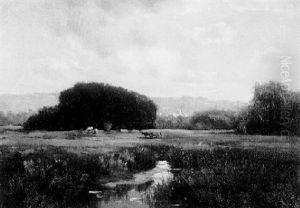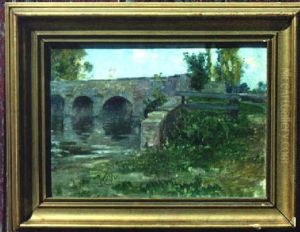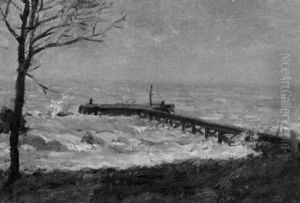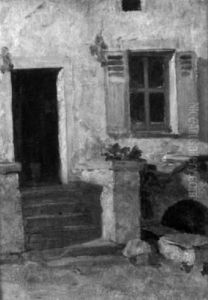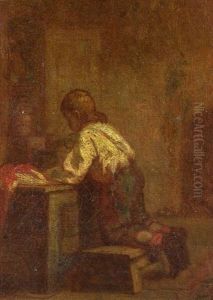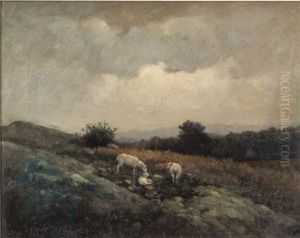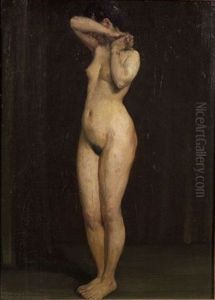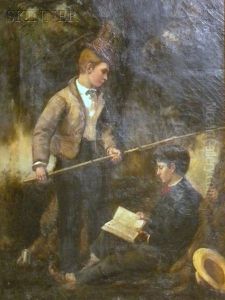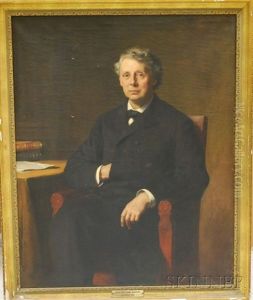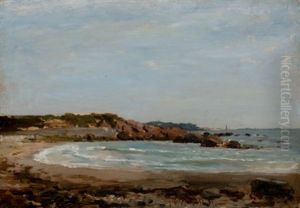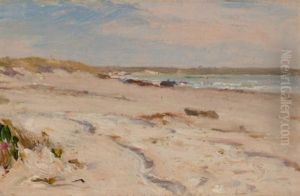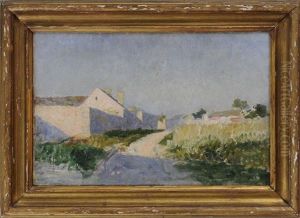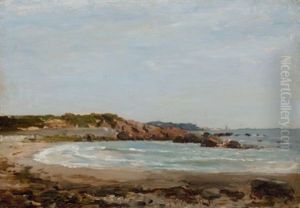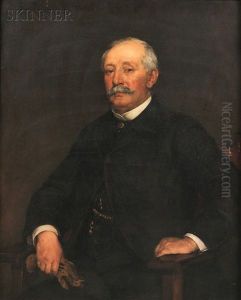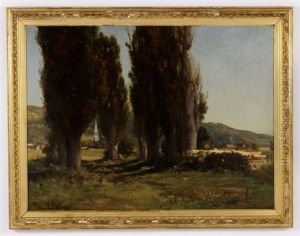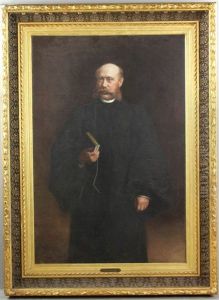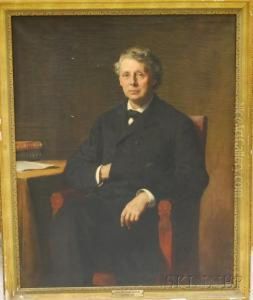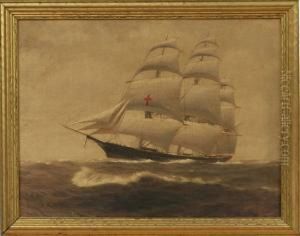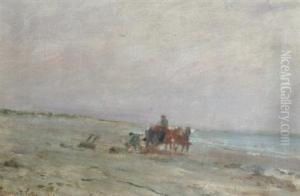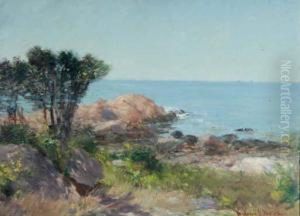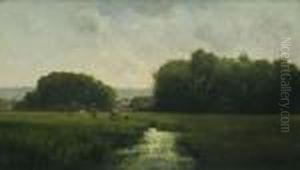Frederick Porter Vinton Paintings
Frederick Porter Vinton was an American portrait painter known for his realistic depictions of his subjects. Born on January 29, 1846, in Bangor, Maine, Vinton showed an early interest in the arts. He initially worked in business but eventually decided to pursue his passion for painting full-time. He studied art in Paris at the Académie Julian under Adolphe William Bouguereau and Tony Robert-Fleury, which was a common route for many American artists of the time seeking formal training.
After completing his studies in Europe, Vinton returned to the United States and settled in Boston, Massachusetts. There, he became a prominent figure in the Boston art scene, known for his skill as a portraitist. Vinton's style was characterized by a refined realism, with a focus on capturing the personality and status of his sitters. He painted many notable figures of his time, including academics, politicians, and wealthy patrons. His work was well-received, and he gained a reputation for his ability to portray his subjects with dignity and grace.
Vinton was an active member of the art community, and he contributed to the American art scene through his involvement with various art organizations. He was a member of the Copley Society and the Boston Art Club, where he exhibited his work. Vinton's portraits are part of important collections, and some can be seen in institutions such as the Massachusetts State House and Harvard University.
Frederick Porter Vinton's career was marked by his dedication to capturing the essence of American life and society through the medium of portraiture. His work provides a valuable historical record of the people and the social atmosphere of his time. Vinton continued to paint until his death on May 19, 1911, in Boston, leaving behind a legacy as one of the leading portrait painters of his era in New England.

